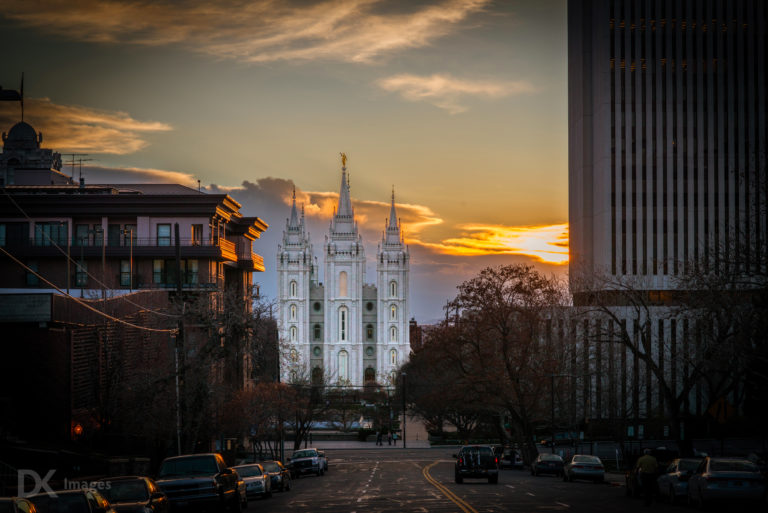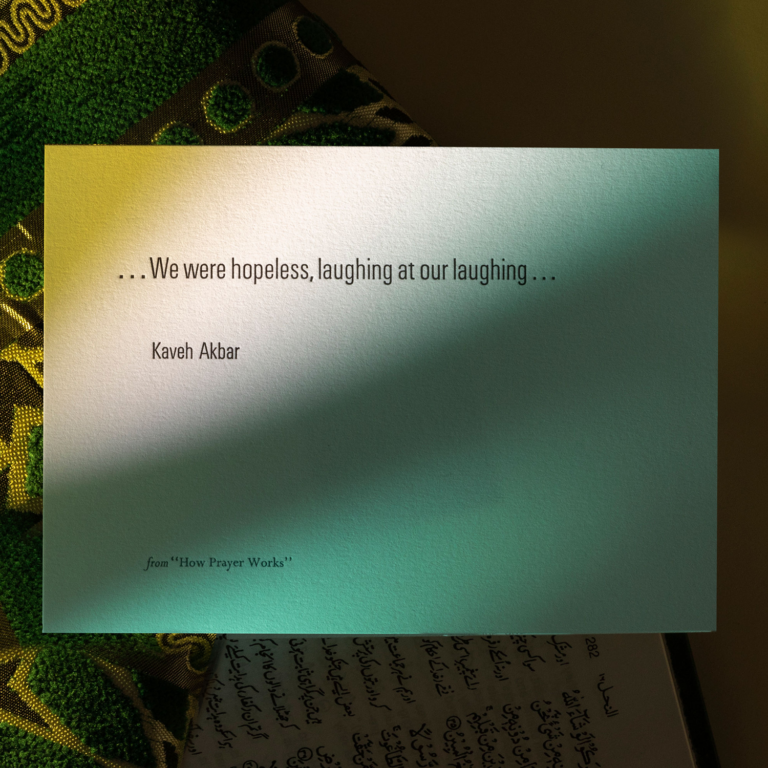
Image by Doug Kentner/Flickr, Attribution-NonCommercial-NoDerivs.
Shine a Light on the Good and Beautiful
This past week, I had a chance to spend a few days giving talks in Utah’s Salt Lake City. It was the first chance I’ve had to spend an extended period of time in the state with a majority population of Latter Day Saints (“Mormon”). My time there has left me thinking about how we have a tendency to shine a light on conflict, instead of amplifying the good and the lovely. I want to start, in a small way, to shine a light on the good.
A coalition of peace and justice movements from Utah pulled together an invitation for me. They were very open about the fact that it would be a lot of work: seven talks in three days in four different institutions. I was delighted to accept. I was honored to be talking about important topics like our current discourse on Islam, the fate of our American experiment, racism, and social justice.
It was also an opportunity for me to visit and learn about the LDS Church, which admittedly I had not known too much about. Our neighbors across the street are a beautiful LDS family. Their angelic daughter and our daughter have been the best of friends for years, soul-sisters truly. My respect for the LDS Church is inseparable from my love for this family.
It is one of the realities that has been with me: the most powerful way of changing about a person’s attitude towards a religious tradition is to have face-to-face, human-to-human encounters with people who embody the teachings of that faith. Ideally, it includes opening one’s heart, one’s home, and sharing a meal with them. The heart-to-heart connection with this family has left me eager to learn more about the Latter Day Saints tradition.
I visited the Latter Day Saints landmarks in Salt Lake City, including the Mormon Tabernacle Choir. I learned about Joseph Smith and Brigham Young, and the history of the persecution of LDS Church. I struggled with how to process the story of God’s revelation to Joseph Smith.

I wondered if Joseph Smith’s account of hearing the voice of God and the experience with the angel Moroni and the golden plates is any more “weird” than Jesus coming back from the dead, or Muhammad seeing an angel fill the horizon and convey the words of God to his heart. Every religious tradition looks a bit strange from the outside, but perfectly truthful from the inside.
It was a lovely visit, getting to speak in front of some thousand people at four different colleges and universities. But, something (not) funny happened after the talks. Someone vandalized seven of the posters for my talk at the University of Utah, and wrote some obscene statements about Islam and Muslims on them.
It was reported on the local news, and then it was picked up by a national Muslim advocacy group. Oh goodie! Crisis! Controversy! At the same time, a right-wing group of bloggers quoted that I had said something really controversial, like “America has a bigotry problem.” (As if that is somehow a revelation.) More crisis!
I would show you the images from the vandalized posters, but that’s precisely the point. I don’t want to. I don’t want to give them the attention they so desperately crave, but do not deserve. Why shine the spotlight on the hate?
This is somehow part of our national discourse. Someone does something offensive and crazy, and we immediately advertise it. I am not unmindful of bigotry — with the caveat of these categories not being mutually exclusive — against Muslims, gays/lesbians, Hispanics, African Americans, women, poor people, etc. But I do wonder about the mindset of always being quick to rush to publicize bigotry against us — and forget about the many who rise to connect their humanity with ours.
I am all for standing up to the structures that produce bigotry and oppression. But I am wondering, even struggling with, how to do that without amplifying it.
I want to shine a light on the good and beautiful. I want to talk about the good and beautiful people I came across in my journeys in Utah. I want to shine a light on Sister Exposito, a Spanish Latter Day Saints missionary who gave me a tour of the LDS grounds, sharing her faith with me, and talked about what has led her to the Mormon faith from Catholicism.
I want to shine a light on Safiullah, the Bangladeshi head public librarian, who is committed to the notion that a well-informed citizenry is essential for a vibrant democracy. I want to shine a light on Dayne, my socialist intellectual/community organizer who worked for 38 years as a janitor, and pulled the whole visit together.
I want to shine a light on Claire, a Pakistani-American who deeply cares about issues of racism and Islamophobia. I want to shine a light on John, an academic dean who is thinking about how to integrate Islam in the curriculum of community colleges in Utah.
I want to shine a light on Leo, who is teaching about the history of Hispanic migration in America, and connecting it to anti-black, anti-Muslim racism. I want to shine a light on Christine, who sees the beauty of Muslim poetry. I want to shine a light on Val, who shared his deep faith with me at the recital, and kindly offered a CD of LDS recital to me before I left.
I want to shine a light on the thousand people who came to the talks, and brought their own light, and insisted that together we are stronger, more beautiful, and more whole. I want to shine a light, instead of giving a spotlight to those who would curse the darkness.
So, friends, let us stand next to one another, shoulder to shoulder, mirroring the good and the beautiful. Shine a light on the good. Applaud the good. Become an advocate of the good and the beautiful. Let us hang on to the faith that ultimately light overcomes darkness, and love conquers hate. It is the only thing that ever has, ever will, and does today.


